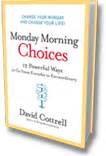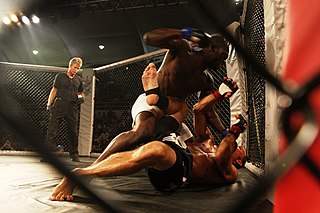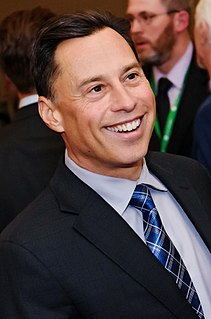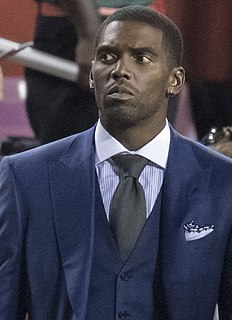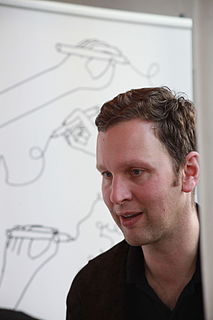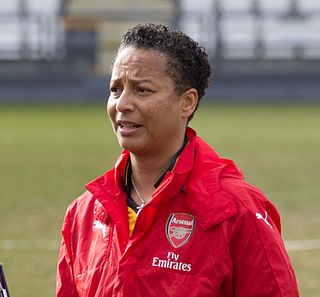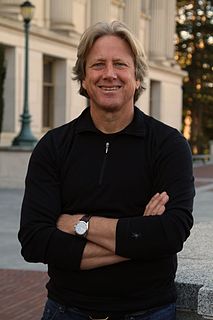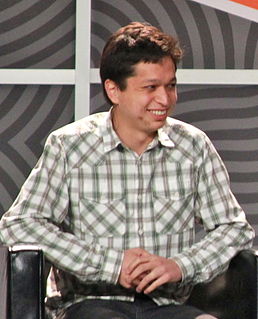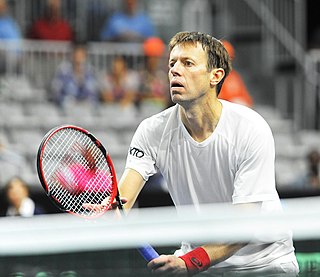Top 1200 Skills Quotes & Sayings - Page 3
Explore popular Skills quotes.
Last updated on September 19, 2024.
Leadership can't be claimed like luggage at the airport. Leadership can't be inherited, even though you may inherit a leadership position. And leadership can't be given as a gift - even if you've been blessed with an abundance of leadership skills to share with someone else. Leadership must be earned by mastering a defined set of skills and by working with others to achieve common goals.
I have great faith in 'ordinary parents.' Who has a child's welfare more at heart than his ordinary parent? It's been my experience that when parents are given the skills to be more helpful, not only are they able to use these skills, but they infuse them with a warmth and a style that is uniquely their own.
Your skills may not be anything out of the ordinary, but you can do miraculous things with what you've got. Maybe it's your parenting skills, or your compassion. It may be your curiosity, your imagination or unique style of fashion. Even if it seems to be no big deal, the lesson here is we all have unique abilities and talents.
It requires a different holistic approach and a recognition that it's not simply a question of stepping into China's shoes. Our 'Make in India' has to be different from China's in the sense that we have to do a 'taal-mel' or 'jugalbandi' of our IT skills that exist and our evolving manufacturing skills and become intelligent manufacturers.
It is urgent to shift from a traditional, authoritative, rote educational approach to a project-based and experiential approach. Specific hard skills are fundamental, but is even more important that students 'learn how to learn' and focus on crucial soft skills such as flexibility and the ability to adapt to change.
One of the leading uses of photography by the mass media came to be called photojournalism. From the late 'twenties' to the early 'fifties' what might have been the golden age of this speciality - photographers worked largely as the possessors of special and arcane skills, like the ancient priests who practiced and monopolized the skills of pictography or carving or manuscript illumination. In those halcyon days the photographer enjoyed a privileged status.
Cognitive skills such as big-picture thinking and long-term vision were particularly important. But when I calculated the ratio of technical skills, IQ, and emotional intelligence as ingredients of excellent performance, emotional intelligence proved to be twice as important as the others for jobs at all levels.
The '60s and '70s - I grew up in the Haight-Ashbury - people around me were going to school by day and all night long having these incredibly exciting meetings, mobilizing, marching, drafting statements. It was very intoxicating. It was very energizing. We've really forgotten a lot of those skills. Or they haven't been transmitted. It's useful to the people controlling us to have those skills not be available.
How do we fill the need for technology workers, people who have computer skills and math and science skills? How do we get a more diverse science workforce? These are all issues - I would look at these documents that were from the '50s and '60s and '70s, and you'd swear they were written two weeks ago because the issues are the same.
In effective, sustained citizen action, people learn the skills of public life with which to act effectively. "Commons," or the common wealth-the public goods that are objects of sustainable public action-become not only occasions for collaboration by invaluable sources of citizen education in their own right because they are the occasions for learning such skills.
I'm often asked, Which is more important--attitude or skill? The answer is that it's somewhat like asking which leg of a three-legged stool is most important. It is my complete conviction, based on a considerable amount of research, that if you have the right attitude, combined with the right skills, and build your attitude and your skills on a solid character base, you can enjoy long-lasting success.
While most of today's jobs do not require great intelligence, they do require greater frustration tolerance, personal discipline,organization, management, and interpersonal skills than were required two decades and more ago. These are precisely the skills that many of the young people who are staying in school today, as opposed to two decades ago, lack.
I used to work as a volunteer in a hospice, but I don't have any nursing skills or cooking skills or anything, so I was what they call an escort. I would take people to the support groups every night, and I would have to sit sort of on the sidelines so I could take them back to hospice at the end of the meeting.
Whether we're fighting climate change or going to space, everything is moved forward by computers, and we don't have enough people who can code. Teaching young people to code early on can help build skills and confidence and energize the classroom with learning-by-doing opportunities. I learned how to fly a hot air balloon when I was 30,000 feet up and my life was in the balance: you can learn skills at any age but why wait when we can teach everyone to code now!
President Bush said that American workers will need new skills to get the new jobs in the 21st century. Some of the skills they're going to need are Spanish, Chinese, Korean, because that's where the jobs went. Who better than Bush as an example of what can happen when you take a job without any training.
There is a clear connection between developing the skills and talents of young people, and our economic success as a province. Initiatives like the Make Your Pitch competition and the Ontario Social Impact Voucher help us nurture the next generation of business leaders. We will continue creating an inviting environment for our next generation of entrepreneurs, ensuring they develop the right skills needed to succeed in a globally competitive economy and build the future of Ontario.
The truth for women living in a modern world is that they must take increasing responsibility for the skills they bring into birth if they want their birth to be natural. Making choices of where and with whom to birth is not the same as bringing knowledge and skills into your birth regardless of where and with whom you birth.
I am a little older and understand the nature of the business - the older you get the more your skills supposedly diminish, but I think I am getting wiser in how to use my physical skills. That's the frustrating part when you put so much heart and desire into things and feel like you are not wanted.
We're losing social skills, the human interaction skills, how to read a person's mood, to read their body language, how to be patient until the moment is right to make or press a point. Too much exclusive use of electronic information dehumanises what is a very, very important part of community life and living together.
My background is in arts education and we know, absolutely for a fact, that there is no better way for kids to learn critical thinking skills, communication skills, things like empathy and tolerance. This is true across every boundary, across cultural boundaries, across socioeconomic, it's a great leveler in terms of unifying our world.
We frequently hear how essential it is for someone to think "outside the box," but what actually determines one's facility for doing so? In other words, what skills make someone a creative thinker? Typically, creative thinkers can view issues from multiple perspectives, define problems in several different ways, and anticipate likely obstacles. Someone's aptitude for these skills determines how well he or she will perform as a creative thinker.
If you and your skills are a complement to the computer, your wage and labor market prospects are likely to be cheery. If your skills do not complement the computer, you may want to address that mismatch. Ever more people are starting to fall on one side of the divide or the other. That's why 'average is over.'
When you learn conflict-resolution skills in the playroom, you then practice them on the playground, and that in turn stays with you. If you have a combative sibling or a physically intimidating, older sibling, you learn a lot about how to deal with situations like that later in life. If you're an older sibling and you have a younger sibling who needs mentoring or is afraid of the dark, you develop nurturing and empathic skills that you wouldn't otherwise have.
Why should we tie everyone's future to athletic success? I think organic farm has saved our school. It saved it because it changed the narrative of the institution. We're the first urban work college in the country. And so our students learn what it means to be effective and to have job skills and work skills.
To put it simply, we need to keep the arts in education because they instill in students the habits of mind that last a lifetime: critical analysis skills, the ability to deal with ambiguity and to solve problems, perseverance and a drive for excellence. Moreover, the creative skills children develop through the arts carry them toward new ideas, new experiences, and new challenges, not to mention personal satisfaction. This is the intrinsic value of the arts, and it cannot be overestimated.
Emotional intelligence in the work that we do, in the Resolving Conflict Creatively Program, is about equipping young people with the kinds of skills they need to both identify and manage their emotions, to communicate those emotions effectively, and to resolve conflict nonviolently. So it's a whole set of skills and competencies that, for us, fall under the umbrella of emotional intelligence.
The best solution would be better strategies for more rapid economic growth and getting people jobs and increases in income. You should simply be clear about matching problems and solutions. If the problem is someone can't find a job because they don't have the skills and they need some retraining, extending emergency unemployment isn't going to solve that. You need the job training programs or the skills bills that come out of the House and are sitting in the Senate.
I think you can learn lots of skills playing football. Team building is one. You also learn how to solve problems within your team. Sometimes you find yourself playing with players that you don't necessarily like, but you have to put your differences aside for the good of the team. It gives you skills that you may not appreciate at the time.
The power paradox is that we gain power by advancing the welfare of other people and yet when we feel powerful, it turns us into impulsive sociopaths and we lose those very skills. If you're in the military, you gain power by forging strong ties in your comrades. And then the irony is that once we feel powerful and we are taken with our own success, we ignore the skills that got us power in the first place.
In our childhoods we either get all the social and emotional and ethical skills we need to be well adjusted adults, or we don't. Some of us don't know how to tell someone we like them. A lot of us get depressed and get wasted. Why don't we do something that makes us feel better? Because we don't know any other way. When I didn't have enough skills I compensated with drugs and alcohol. It's like there was a hole in the wall and I put a poster over it.
The more you learn about yourself and your family tree, your self-esteem goes up. They will learn archival skills, historical analysis and science skills. You learn all this in the most seductive way, and that is through learning about yourself. Who doesn't like talking about themselves? It doesn't seem like science or history, it's just fun.
If someone were to ask whether communications skills or meekness is most important to a marriage, I'd answer meekness, hands down. You can be a superb communicator but still never have the humility to ask, 'Is it I?' Communication skills are no substitute for Christlike attributes. As Dr. Douglas Brinley has observed, 'Without theological perspectives, secular exercises designed to improve our relationship and our communication skills (the common tools of counselors and marriage books) will never work any permanent change in one's heart: they simply develop more clever and skilled fighters!
[Corporate programming] is often done to the point where the individual is completely submerged in corporate "culture" with no outlet for unique talents and skills. Corporate practices can be directly hostile to individuals with exceptional skills and initiative in technical matters. I consider such management of technical people cruel and wasteful.
Facilitative attitudes (and skills) can help a therapist gain entry into the group Freedom from a desire to control the outcome, and respect for the capacity of the group, and skills in releasing individual expression Openness to all attitudes no matter how extreme or unrealistic they may seem Acceptance of the problems experienced by the group where they are clearly defined as issues Allowance of the freedom of choices in direction, either for the group or individuals particularly in the near future
Living with the exhortation "Be in the World But Not of It," stimulates the best of your analytical skills, deepens your intuition, eliminates destructive competition, develops your skills and creativity serially and painlessly, and develops concentration, efficiency, accuracy, and humor. And that's what a creative life is all about: making it a work of art.
I'm not saying that I don't have skills. I'm saying I don't feel like I can use my skills to achieve self-esteem. I feel like it's cheating. I think that I should have self-esteem simply because I am a human being who deserves love and deserves everything just as much or just as little as everyone else.
I really believe that the raw ingredient of any creative business is the set of experiences that the team has, the set of skills. I think a simple fact is that if you have a different set of experiences based on how you grew up or how other people perceive you, or if you have a different set of skills, that will produce a better company.
Just think of the opportunities we can unlock by making education as addictive as a video game. This type of experiential, addictive learning improves decision-making skills and increases the processing speed and spatial skills of the brain. When was the last time your child asked for help with a video game?
It only takes about 50 contact hours to transmit basic literacy and math skills well enough that kids can be self-teachers from then on. The cry for 'basic skills' practice is a smokescreen behind which schools pre-empt the time of children for twelve years and teach them the six lessons I've just taught you.
People, to maintain their self-esteem, tend to believe they are above average on all positive qualities - height, income, intelligence, sense of humor, negotiating ability, you name it. The problem is that if we are going to really build our skills, we need to know which skills are most deficient. So, I advise people to find confidantes to tell them the truth. And then act on that knowledge to build the abilities they need to be more successful.
Certainly, by providing individuals coming out of institutions with ways to become productive citizens, we reduce recidivism. What that means is we reduce crime. There are fewer victims when individuals have options - when they have job skills, when they have life skills, we break the cycle of children following their parents into institutions.
Everything I said he agreed with, which was trying, and his flute playing would make the deaf wince, but I think the real problem with Hyacinth was that he reminded me of myself. He read poetry. He flinched at loud noises. In addition to having no musical skills, he had no martial skills. He avoided any situation that might require physical effort on his part. Seeing him, I found it no wonder that my father despised me.
First of all, women inherently, I think, are quite capable of having lots of balls in the air. And so, like, it's all those skills you use; you analyze the problem, figure out your tools, and then go at it piece by piece.... It's like what you have to do in the morning to get your kids out the door [if you're a parent]. The skills are, I believe, the same. The patience issues are the same.
